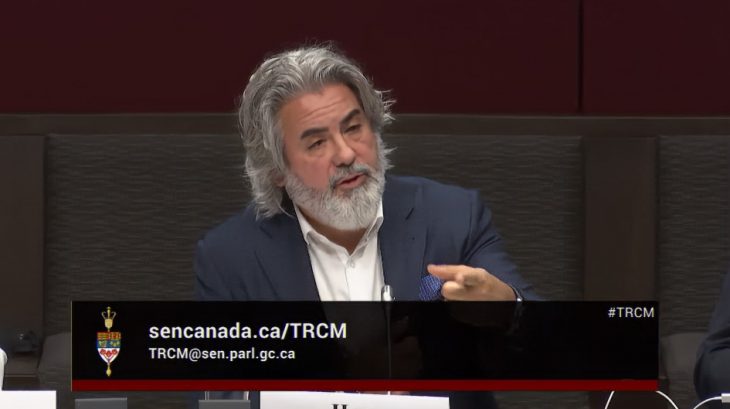
By Christopher Guly
OTTAWA — Prime Minister Justin Trudeau said Wednesday that the move by Google and Meta to trial blocking news on their platforms in response the Online News Act is “not going to work.”
In a response to a question about Meta’s move last week to test block news on its Facebook and Instagram products, Trudeau said “these internet giants [that] would rather cut-off Canadians’ access to local news than pay their fair share.” The Online News Act, Bill C-18, would require large technology platforms to compensate news publishers for linking to their work.
They are “resorting to bullying tactics to try and get their way,” Trudeau said during a press conference about the wildfire crisis. “It’s not going to work…We will continue to make sure that these incredibly profitable corporations contribute to strengthening our democracy, not weakening it.”
Last month, Rachel Curran, the Ottawa-based head of public policy in Canada for Meta, parent company of Facebook, told the Senate committee that “it is publishers that benefit from being on our platforms, not the reverse” during a hearing in which both Meta and Google threatened to remove Canadian news articles should C-18 become law.
Meta’s move followed Google’s blocking test over a five-week period earlier this year.
But Heritage Minister Pablo Rodriguez, appearing before the Senate transport committee on Wednesday evening, said digital platforms gain “value” from posting news content.
Bill C-18 “gives digital platforms a clear roadmap on the criteria to follow in negotiations with news companies,” Rodriguez said.
He told committee members that 77 per cent of Canadians get their news online, including 55 per cent from social media.
“Right now, there is no incentive for digital platforms to pay news businesses or journalists fairly for their content,” said Rodriguez, who noted that since 2008, nearly 500 news outlets – including newspapers, and radio and television stations – have been shuttered and have left the “traditional news sector in crisis.”
This year’s federal budget allocated $8.5 million over two years to help the CRTC establish a new legislative and regulatory framework for Bill C-18. After the two-year period of bridge funding, the commission is to recover its costs from platforms.
The federal government said the proposed legislation could generate from $150 million to $200 million annually to the Canadian news industry, while a report from the Office of the Parliamentary Budget Officer last October projected that news organizations would receive from digital platforms $329.2 million per year.
The Online News Act defines news businesses as those that are either designated as a qualified Canadian journalism organization under the Income Tax Act or that regularly employ two or more journalists in Canada and “produces news content of public interest that is primarily focused on matters of general interest and reports of current events, including coverage of democratic institutions and processes.”
Meanwhile, platforms, defined as “digital news intermediaries” under the legislation, which have a “significant bargaining power imbalance with news businesses,” may be subject to the Act.
According to a Q and A prepared by Canadian Heritage for Rodriguez on the bill, “a platform has a significant bargaining power imbalance if it is large (e.g., in terms of revenue) and occupies a prominent position in Canadian markets that are strategic or essential for the provision of news (e.g., the search engine market and the social media market).”
Not captured by the proposed legislation are news aggregators that “focus exclusively on news and typically license news content.”
Rodriguez highlighted Wednesday that when the bill was before the House of Commons last year, Members of Parliament introduced key amendments to help make it more inclusive for small news outlets and startups.
C-18 includes a collective bargaining process that would “allow news business to get together and negotiate fair agreements collectively” and increase “the bargaining power of small and racially diverse companies,” Rodriguez said.
He said that furthermore, the federal government would appoint “an independent auditor to annually assess the extent to which the law is achieving its goal of creating a fairer news environment and this will allow us to make any adjustments every year if needed.”
The aim, Rodriguez explained, is to “give Canadian news media a chance to rebuild and thrive in a more sustainable and fairer news ecosystem.”



